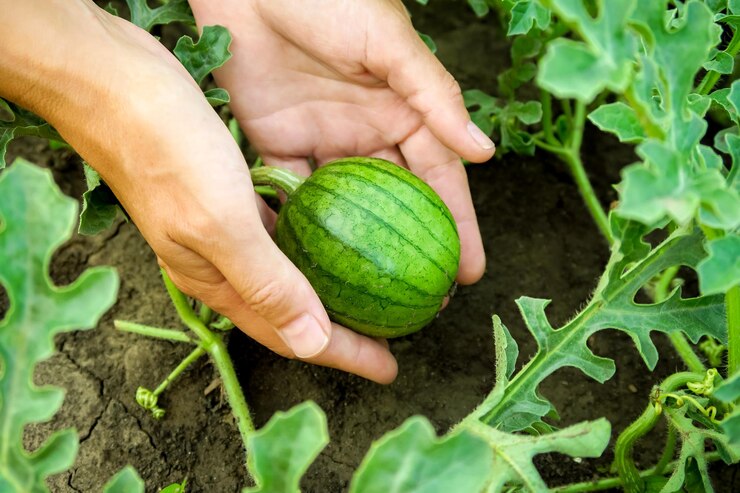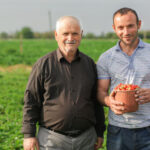Watermelons are a popular and refreshing fruit that can be successfully grown in various regions of South Africa. Whether you’re considering growing watermelons for commercial purposes or in your backyard, here are ten important things you should know:
- Climate and Region: Watermelons thrive in warm and hot climates with long, sunny growing seasons. South Africa has several regions suitable for watermelon cultivation, including Limpopo, Mpumalanga, and parts of KwaZulu-Natal. Choose a region with high temperatures and adequate sunshine to ensure optimal growth and fruit development.
- Variety Selection: There are numerous watermelon varieties available, each with its unique characteristics in terms of size, flavor, and disease resistance. Popular watermelon varieties grown in South Africa include Crimson Sweet, Sugar Baby, and Charleston Gray. Consider factors such as taste preferences, market demand, and growing conditions when selecting watermelon varieties.
- Soil Requirements: Watermelons prefer well-drained, sandy loam soils with good water-holding capacity. Conduct a soil test to determine the pH level and nutrient content of your soil. Watermelons generally prefer a slightly acidic to neutral soil with a pH range of 6.0 to 7.0. Amend the soil with organic matter and appropriate fertilizers based on soil test results.
- Land Preparation: Clear the land of weeds, debris, and rocks before planting watermelons. Prepare the soil by tilling and incorporating organic matter to improve its fertility and structure. Ensure proper drainage to prevent waterlogging, which can be detrimental to watermelon plants.
- Planting and Spacing: Watermelons can be planted directly from seeds or through transplants. Sow seeds or plant transplants at the appropriate depth, following the instructions provided for the specific variety. Provide adequate spacing between plants to allow for proper airflow and room for vines to spread. The spacing between watermelon plants typically ranges from 1.5 to 2 meters within rows and 2.5 to 3 meters between rows.
- Irrigation: Watermelons require consistent and sufficient irrigation throughout their growth cycle. Implement an efficient irrigation system, such as drip irrigation or furrow irrigation, to provide uniform water distribution and avoid overwatering. Watermelons need regular watering, particularly during flowering, fruit set, and fruit development stages. Monitor soil moisture levels and adjust irrigation accordingly.
- Fertilization: Watermelons have specific nutrient requirements for healthy growth and optimal fruit production. Conduct a soil analysis and consult with agricultural experts to determine the appropriate fertilizer regimen. Apply balanced fertilizers with nitrogen, phosphorus, and potassium, along with micronutrients, based on the specific needs of watermelon plants and the soil conditions.
- Pest and Disease Management: Watermelons can be susceptible to pests such as aphids, cucumber beetles, and diseases like powdery mildew and fusarium wilt. Implement integrated pest and disease management strategies, including regular monitoring, cultural practices, use of resistant varieties, and targeted pesticide applications when necessary. Practice crop rotation and maintain good sanitation to minimize disease pressure.
- Pollination: Watermelons require proper pollination for fruit development. Bees are the primary pollinators for watermelon plants. Encourage bee activity by providing flowering plants nearby and avoiding the use of pesticides harmful to bees. If bee activity is limited, consider hand-pollination techniques to ensure adequate fruit set.
- Harvesting: Watermelons are ready for harvest when they reach their desired maturity and show signs of ripeness. This includes a change in skin color, a dull sound when tapped, and a firm rind. Harvest watermelons carefully, using a sharp knife or shears to cut the stem near the fruit. Handle them gently to avoid damage.
By considering these ten crucial factors before growing watermelons in South Africa, you’ll be better prepared to cultivate a successful crop. Stay updated on local research, industry best practices, and consult with local agricultural experts for tailored advice. With proper care and attention, you can enjoy a delicious harvest of juicy watermelons from your South African garden or farm.







